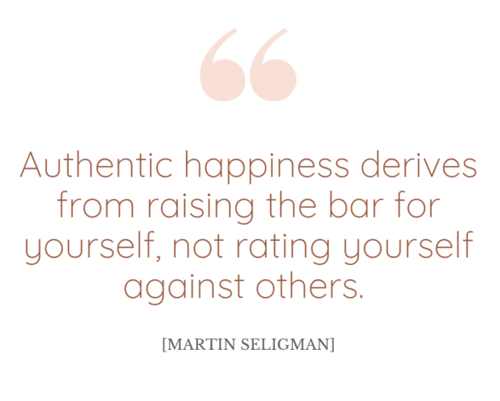
Respondr Book Review: Authentic Happiness by Martin Seligman
Published by Respondr 3 min readAuthentic Happiness by Martin Seligman is a foundational book in the study of positive psychology. Seligman explores the concept of happiness from a scientific perspective, offering insights into how individuals can cultivate a more fulfilling and meaningful life. He introduces the idea that happiness is not just about feeling good but also about living a life of engagement, meaning, and purpose. The book provides practical strategies for enhancing well-being, grounded in extensive research and psychological theory.

💡Key Lessons for First Responders
First responders, such as paramedics, face unique challenges that can impact their mental health and overall well-being. The high-stress nature of the job, exposure to trauma, and the demand for constant vigilance can take a toll over time. Authentic Happiness offers valuable lessons that can be particularly beneficial for first responders in managing these challenges and promoting personal development.
1. Cultivating Positive Emotions
Seligman emphasizes the importance of cultivating positive emotions as a foundation for authentic happiness. For first responders, this can mean finding ways to experience joy, gratitude, and hope amidst the demands of their work. By focusing on positive experiences, even small ones, paramedics can build emotional resilience, which is crucial for coping with the stresses of their profession.
🔸Application: First responders can make a habit of reflecting on the positive aspects of their day, such as successful outcomes, acts of kindness, or moments of connection with colleagues and patients. Keeping a gratitude journal is a practical way to reinforce this habit and enhance overall well-being.
2. Engagement and Flow
One of the key concepts in Authentic Happiness is the idea of "flow"—a state of deep engagement where individuals are fully absorbed in activities that challenge their skills. For first responders, achieving flow can be a powerful way to find fulfillment in their work. When paramedics are deeply engaged in their tasks, whether it’s performing a complex medical procedure or managing a critical situation, they may experience a sense of accomplishment and purpose.
🔸Application: To increase the likelihood of experiencing flow, first responders can focus on continuous learning and skill development. By mastering new techniques or expanding their knowledge, they can enhance their ability to fully engage in their work and find greater satisfaction in their roles.
3. Building Meaning and Purpose
Seligman argues that a key component of authentic happiness is living a life with meaning and purpose. For first responders, this can be particularly relevant, as their work inherently involves helping others and making a difference in people’s lives. However, it’s important to actively connect with this sense of purpose to maintain motivation and prevent burnout.
🔸Application: First responders can regularly reflect on the impact of their work, considering how their efforts contribute to the well-being of individuals and the community. Engaging in conversations with peers about the meaningful aspects of their roles can also reinforce a sense of purpose and help sustain long-term career satisfaction.
🧠 Key Takeaways
Authentic Happiness by Martin Seligman offers a wealth of insights that can significantly benefit first responders, both personally and professionally. By cultivating positive emotions, seeking out flow experiences, and connecting with the deeper meaning of their work, paramedics can enhance their resilience, well-being, and job satisfaction. As first responders continue to serve their communities with dedication, embracing these principles can help them maintain their mental health and thrive in their challenging but rewarding careers.
This book is a valuable resource for anyone looking to deepen their understanding of happiness and apply these concepts to foster a more fulfilling life.